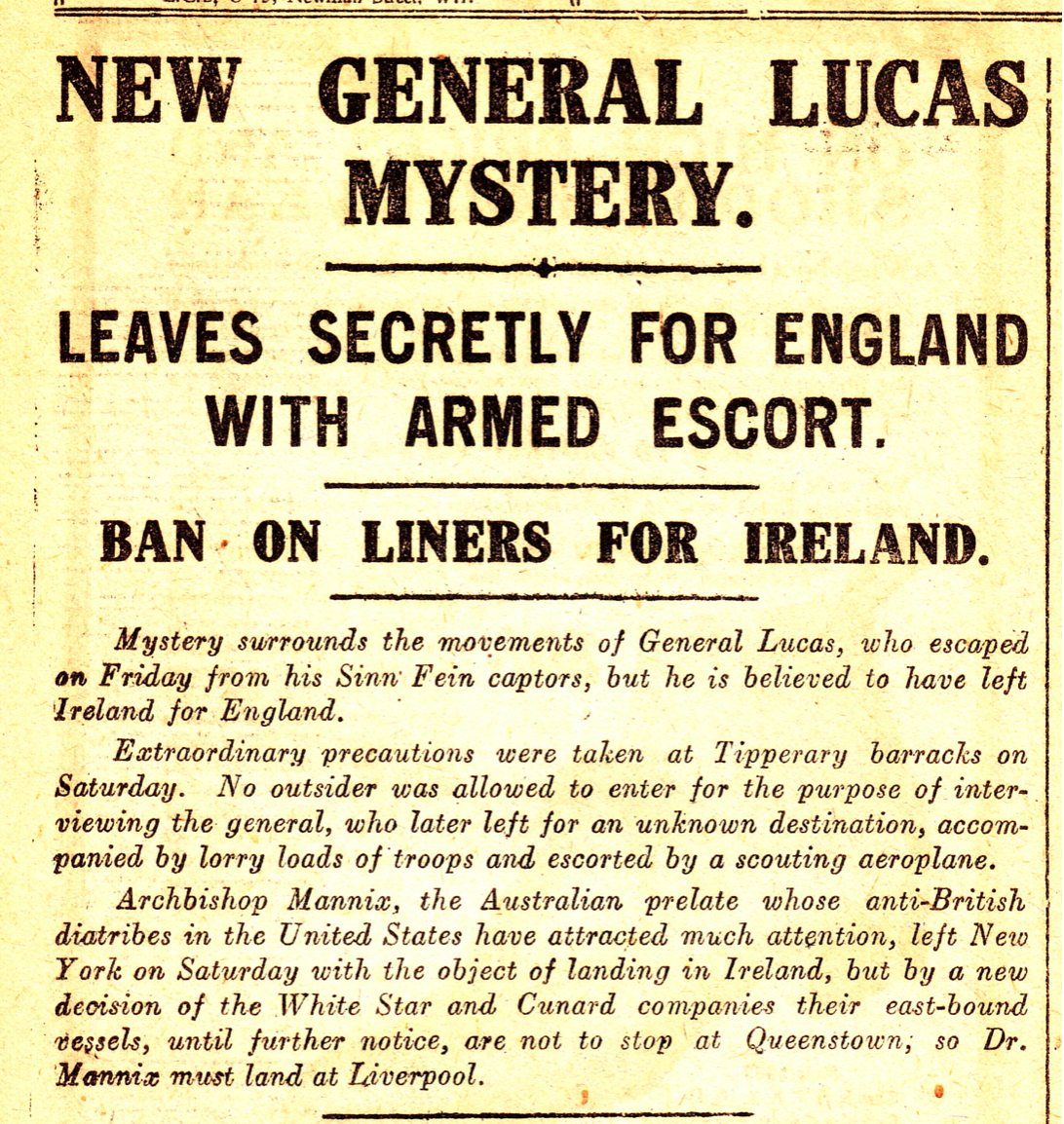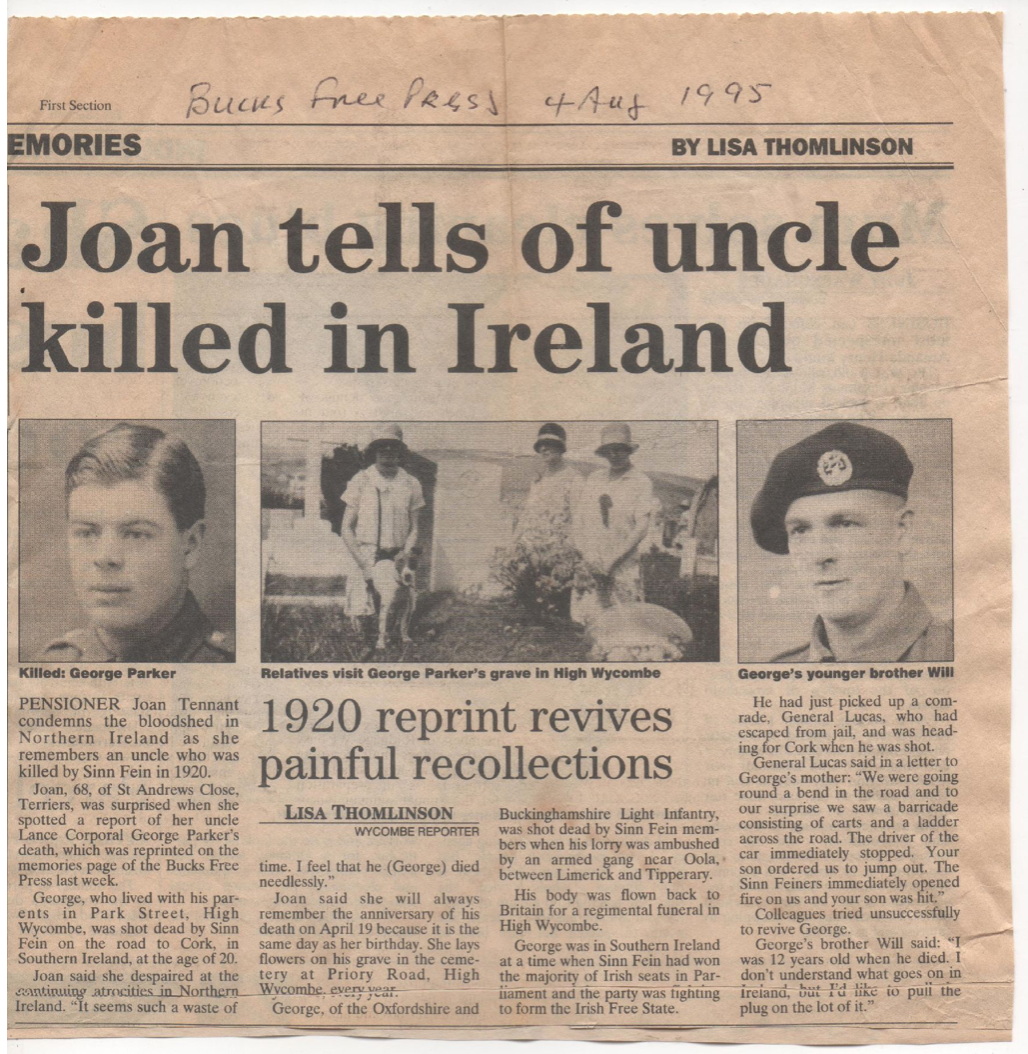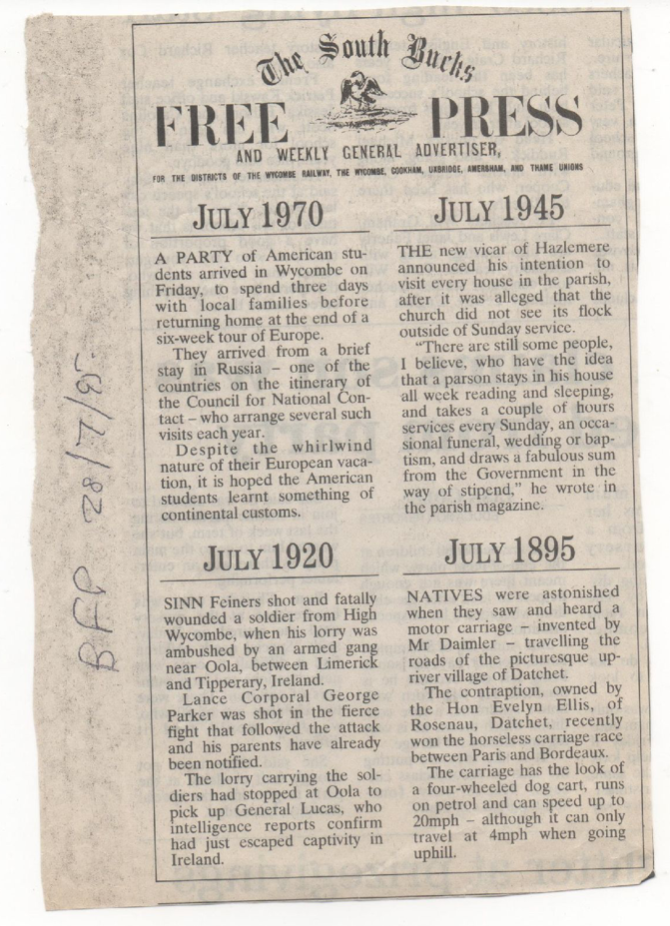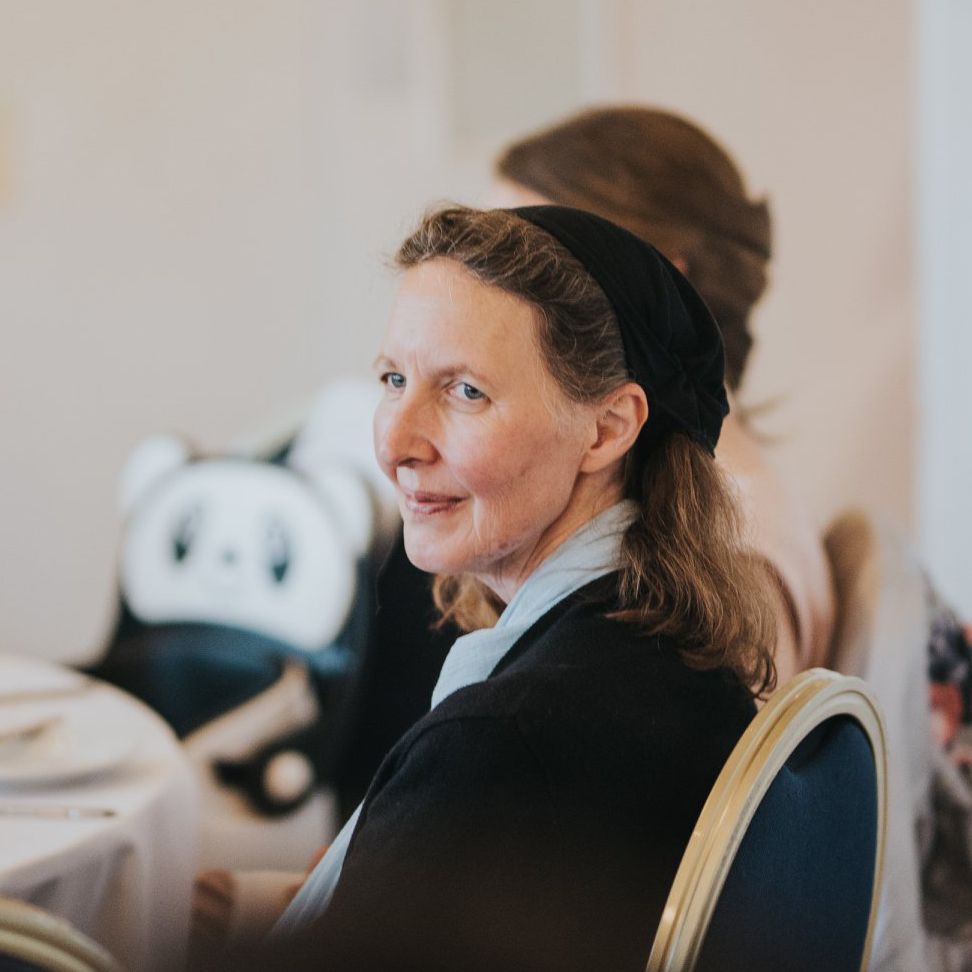3rd August - No Letter
Location: Fermoy - Tenby, Pembrokeshire
The Court of Inquiry was held on the 3rd August. CHTL submitted a detailed report based on his secret diary. Interestingly in his official report there was no mention of playing cards, croquet, hay making or fishing! Churchill had been very keen to court-martial CHTL. Here was another maverick army officer who was causing Churchill personal embarrassment in his humiliating questioning in the House of Commons and generally making things extremely uncomfortable for him politically.
CHTL like Sherwood Kelly would not be bent to follow what those in authority wanted. CHTL was far more tactful and respectful of authority than Sherwood Kelly ever was, but he too was never a ‘yes’ man. He was a straight-talker and would not be stopped from speaking the truth. For this he is said to have been ‘reprimanded’. The Limerick Leader of 20 August 1920 carried a report that General Lucas had been absolved of all blame in the matter of the court of inquiry, which investigated his capture. For ‘military reasons’, however, 'General Lucas would not be returning to his brigade at Fermoy but he would be posted to a position of equal importance elsewhere'.
The ‘Daily Chronicle’
GENERAL LUCAS
The ‘Daily Chronicle’ understands that General Lucas will not return to his brigade at Fermoy, as it has been decided to give him a command of equal importance elsewhere. An investigation by a Court of Inquiry into the circumstance of his capture by Sinn Feiners resulted in his being absolved from all blame.
Dan Breen, Commandant of the Third Tipperary Brigade, recalled CHTL’s time ‘in custody’:
"Lucas was held in custody for four weeks. During that time he was reared with the courtesy befitting his rank and character. Every reasonable facility was given him for communicating with his relatives. He enjoyed every comfort that his captors could provide. He was paroled while he enjoyed some fishing in mountain streams. In addition, the London Times was made available for him each morning as he sat down to breakfast. To his credit, be it said, he publicly acknowledged the kindness that had been shown to him. He is reputed to have been reprimanded by the British War Office for this open avowal."
P374 The War of Independence in Limerick Tom Toomey
CHTL had a sharp rap on the knuckles behind closed doors, but politically that would not have gone down well with the public at large.
After the Court of Inquiry was concluded - with the verdict being that CHTL was absolved of all blame for his escapade - CHTL was free at last to enjoy some home leave and to meet his son for the first time. He got on the first available ferry and crossed the Irish Sea, never to return again. Finally CHTL was back on ‘home soil’ and sent a telegram to Poppy before heading to London to see her and Cutlett:
Dated 3 Aug 20 handed in 6.45pm Tenby Rail
Tindall Lucas The Hall Welwyn
Arrived Pembroke this evening reach London early tomorrow Welwyn tomorrow evening Cuthbert
The Press was intrigued by the movements of the celebrity General:
MYSTERY OF GEN. LUCAS
TROOPS AND AEROPLANES ESCORT HIM FROM TIPPERARY
From the ‘‘Daily Chronicle’’ Special Correspondent. DUBLIN, Sunday
There is much mystery concerning the whereabouts of General Lucas since his escape as there was when he was held captive by Sinn Fein Volunteers. He left the barracks at Tipperary shortly after noon yesterday, and from that moment his movements are shrouded in official silence. He is vaguely reported as having sailed from Queenstown later in the day for England, abroad a destroyer.
Telegraphic inquiries addressed to General Lucas at Tipperary are undelivered, and the senders are advised to try his old command headquarters at Fermoy. The only fact certain, however, is the uncertainty of his present location.
GUARDING THE GENERAL.
General Lucas has determined not to be interviewed upon his experiences in captivity, and those who sought to speak to him at Tipperary yesterday were escorted from the barrack gates to the roadway by a section of the guard, carrying rifles and bayonets fixed.
Actually the military officials there appear to have been deeply suspicious of all civilians, irrespective of what credentials they could produce, whose ambition
it was to penetrate to the presence of general Lucas - perhaps there is a strong reason for this attitude, as it is firmly believed that the barracks were closely watched throughout the the morning by dubious individuals, supposedly anxious to obtain information with respect to his prospective movements.
AEROPLANE IN ATTENDANCE.
The General quitted the barracks quite suddenly. While the sentries were harassing a little group of civilians along the roadway a motor lorry, crowded with alert soldiers and carrying Lewis guns, rumbled through the barracks gates, followed by an open touring car, in which sat two gentlemen in mufti.
A second lorry, equipped similarly to the first, concluded the ‘‘convey’’, while an aeroplane watched the route. which it pursued from overhead.
Not until the tree motors had disappeared beyond a bend was it realised by the party who had been subjects of the guards’ pressing attentions, that one of the two figures in the centre car was General Lucas. All efforts since then definitely to trace him have proved futile. An inquiry I made at headquarters in Dublin this afternoon was met with the statement that there was no information to be given about him. Cork, Fermoy, and Tipperary also yielded negative results.
A DISCREDITED THEORY.
The General is understood to have pledged to secrecy the brother officers with whom he has, presumably, discussed his dramatic adventures, and in the absence of an official account of the manner of his reappearance it is not surprising that it is now suggested that he was voluntarily released by his captors.
This theory, however, is discounted by the extraordinary precautions taken to protect him from the time of his arrival at the police barracks at Pallas. it is probable, though, that the ambushing of the lorry at Oola, in which he was travelling to Tipperary on Friday, was a coincidence, and that the raiders were ignorant of the important personage it contained.
WOUNDED AT OOLA.
In the fight which ensued on that occasion General Lucas was exceedingly active, and two slight flesh wounds which he received - one in the head and one under the nose - are visible evidences of the danger he incurred.
I understand that within a week of the original kidnapping, his local captors, having demonstrated their ability to keep him in impenetrable secrecy, proposed to release him, but other counsels amongst the Volunteers prevailed, and his detention was preserved with.
It is circumstantially declared that he was well treated during his captivity. This is indubitable, and in accordance with the traditional Volunteer treatment of prisoners, but another story, that he was permitted to fish and had been promised shooting must be accepted with reserve.
For the real facts, it seems the public will have to wait for the inquiry into the circumstances of the kidnapping of the General, suggested in the ‘‘ Daily Chronicle’’, which, I was informed on high authority lately, would be held when he regained his freedom.
NO NEWS AT HIS HOME.
General Lucas’s return home is being surrounded
with such secrecy, writes a ‘‘Daily Chronicle’’ representative that even his relatives are unaware of them.
‘‘We have no communication at all as to when and how General Lucas will return.’’ said Miss Lucas last night.
‘‘We are very anxious to hear, but all we know is gained from the Press.’’
Reports that General Lucas arrived at Queenstown on Saturday night, that he is on the way to London to visit his wife in a nursing home, and even journeying by aeroplane, are current, but details are lacking as to the route he is taking. Until he has safely completed his journey, no official communication will be forthcoming.
Newspaper cutting - Lucas Family Archive

Whether CHTL really believed that the IRA would want to get him back, or whether he just decided to use that fear as an excuse to ensure that he didn’t have to return to Ireland, one can only surmise. It is known that he didn’t want to stay in command in Fermoy as he worried about being put in an awkward position if he ever encountered any of his former captors- where the tables were turned and they had become British prisoners. He’d had enough of the chaotic Irish situation long before he’d been captured and at the end of the Great War had expressed his weariness with having been through seven years of war and fighting. CHTL just wanted to settle down with his new family and enjoy a bit of peace for a change. Now this was his chance to achieve that.
Finally CHTL crossed the Irish Sea and sent a telegram before heading to London to see Poppy.
The Oola Casualties
I have Brian Murphy to thank for sending me the following two newspaper cuttings.
It’s important to remember that although it was a time of rejoicing for the Lucas family that it was also a time of mourning for the families of the soldiers that died at Oola. It’s so easy to forget that any death brings terrible heartache and that a premature violent death does not just affect one generation but can continue into the next generation. On one level, freedom fighters and politicians see casualties as worth the gains, but at the family level very often nothing appears worth the sacrifice of their loved ones.
It filled me with a cold chill when I read about how willing Churchill was to sacrifice the life of my grandfather for political gain. That helped me understand a little more of what families who lose loved ones for causes that they don’t understand or believe in feel. Many in the UK don’t understand what the fighting in Ireland has been about. That’s partly due to a lack of education and communication and I hope that the publication of these letters might help build those bridges. Too many lives were lost on both sides of the conflict, and too many families were left mourning loved ones.
CHTL was following usual procedure to write to the grieving family. One wonders just how many similar letters he had to write during the first World War. George Parker helped save his life and he would have been very grateful.
Please note that Joan’s recollection of the anniversary of her Uncle’s death is wrong. It was 30th July 1920. This could have been a mistake by the newspaper, I know personally how the media can make amazing mistakes!



